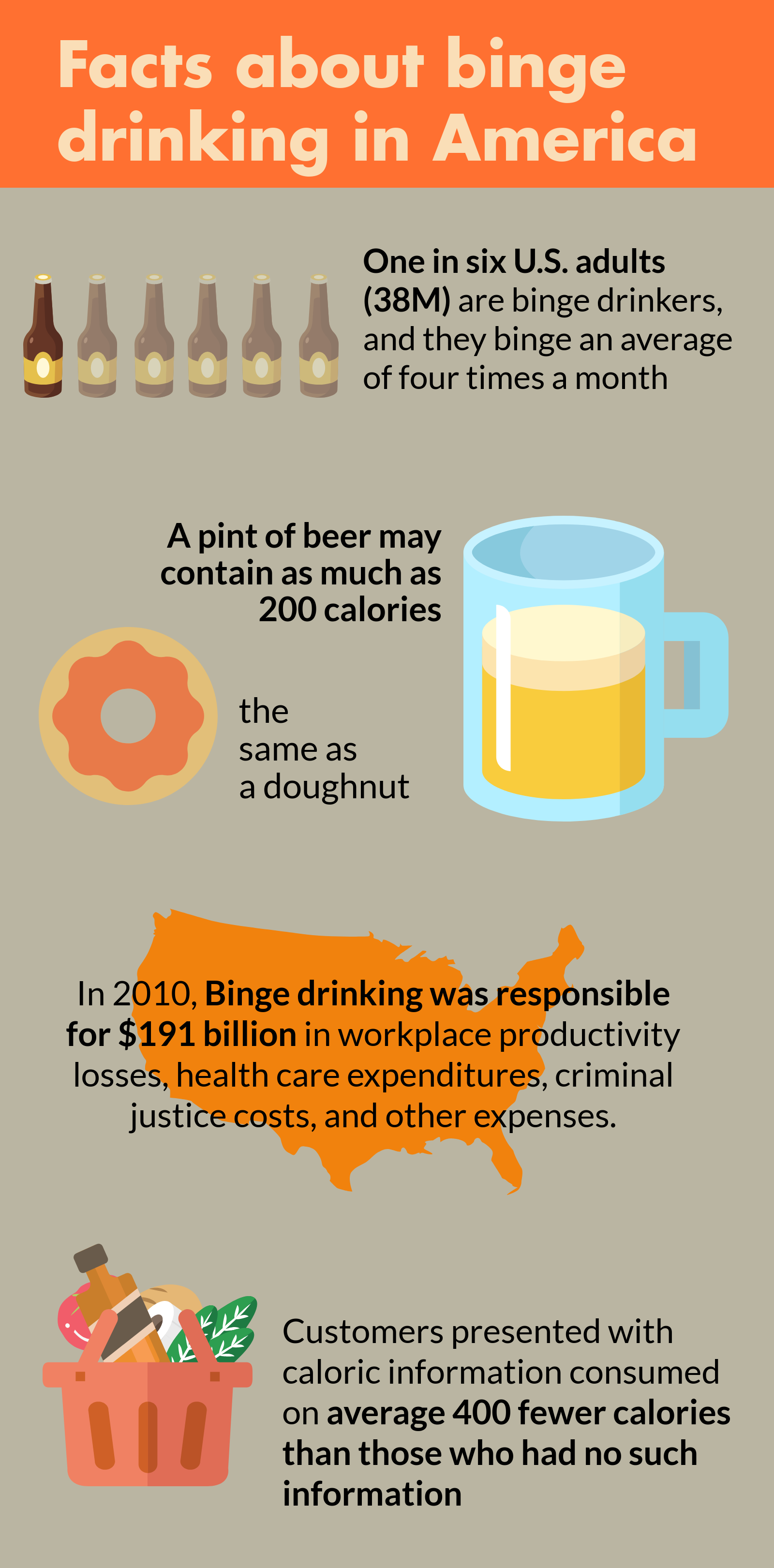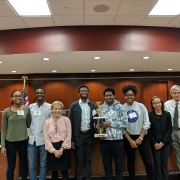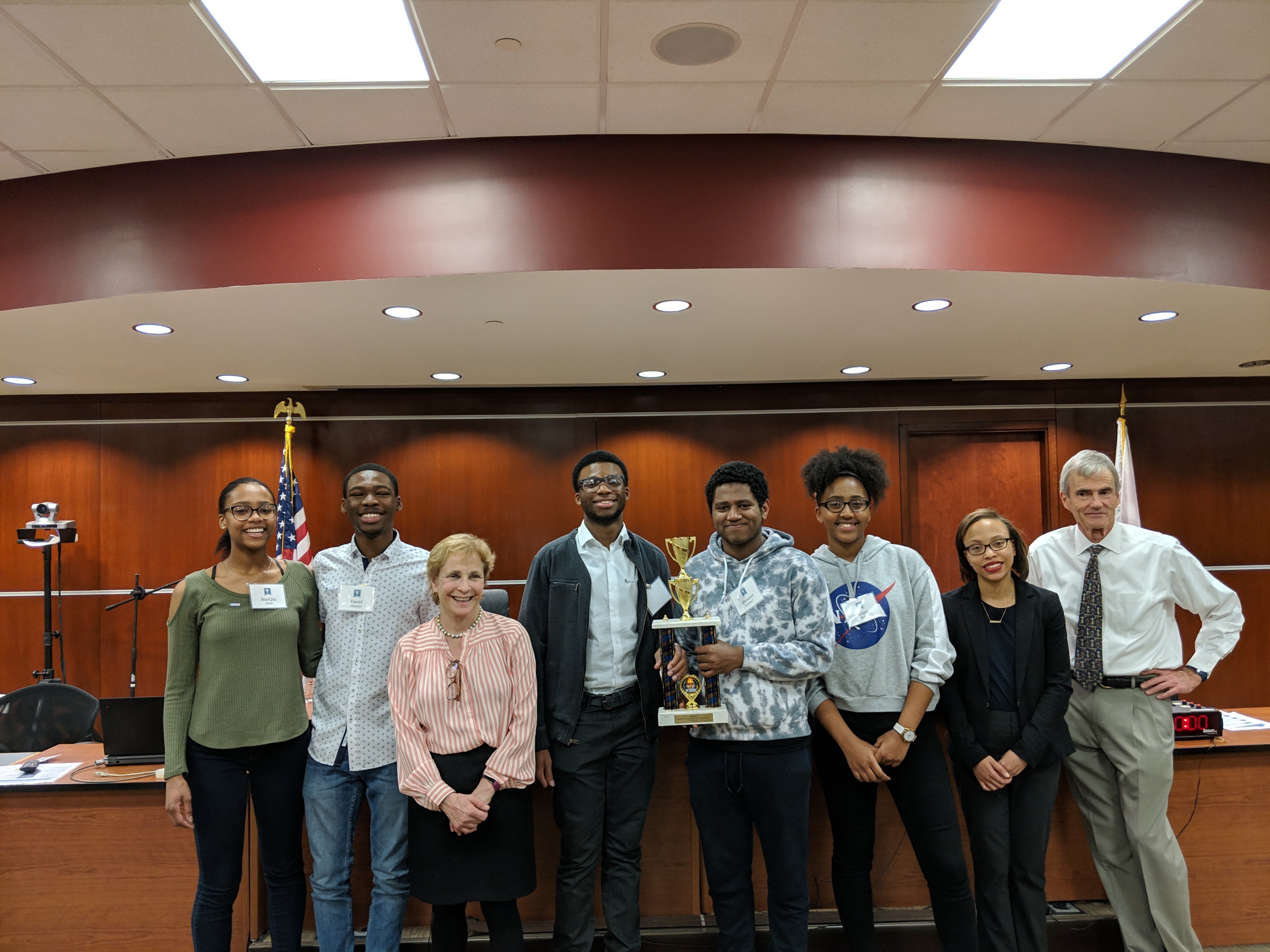 Shaunice Wall is NCL’s Linda Golodner Food Safety and Nutrition Fellow
Shaunice Wall is NCL’s Linda Golodner Food Safety and Nutrition Fellow
Alcohol – like everything else we eat and drink – is best enjoyed in moderation. If consumed to excess, drinking alcoholic beverages can lead to addiction and increased risk of certain chronic diseases, but also weight gain, because these drinks are often dense in calories and devoid of nutrients.
One of the problems consumers face, however, is that there is virtually no information on the nutritional content in the alcoholic beverages they consume. NCL has been working to change this for more than 30 years, but progress on this front has been very disappointing. Does lack of a label cause binge drinking? Of course not, but evidence indicates that caloric and nutritional labeling encourages healthier choices when consumers read and understand the labels.
What is binge drinking anyway?
The National Institute on Alcohol Abuse and Alcoholism defines binge drinking as a pattern of drinking that brings a person’s blood alcohol concentration (BAC) to 0.08 grams percent or above. For men, it means consuming 5 or more drinks – and for women – it’s consuming 4 or more drinks in about 2 hours.
A “drink” defined
A “drink” refers to half an ounce of alcohol (e.g., a 12oz. beer, a 5oz. glass of wine, or a 1.5oz. shot of distilled spirits).
The impact of alcohol consumption and binge drinking
In 2015, the National Survey on Drug Use and Health reported that 86.4 percent of people in the United States aged 18 or older drank alcohol at some point in their lifetime.
According to the U.S. Centers for Disease Control, binge drinking is the most common, costly, and deadly pattern of excessive alcohol use in the United States. More than one in six U.S. adults, or 38 million people, are binge drinkers, and they binge an average of four times a month.
In 2010, alcohol consumption cost America an estimated $249 billion in workplace productivity losses, health care expenditures, criminal justice costs, and other expenses — binge drinking was responsible for 77 percent of these costs, or $191 billion.
 Some nutritional consequences of binge drinking
Some nutritional consequences of binge drinking
In 2018, a study funded by the National Institutes of Health found that young adults who frequently binge drink were more likely to have cardiovascular risk factors, including higher blood pressure, cholesterol, and blood sugar at a younger age than non-bingers. In addition to malabsorption of several nutrients in the gut, binge drinkers are at risk of malnutrition because alcohol contains calories that may substitute for those in more nutritious foods. Another more common consequence of binge drinking is weight gain, which in turn contributes to the nation’s obesity epidemic.
The link between alcohol and obesity
Researchers suggest a positive correlation between calories derived from alcohol and obesity. Alcohol also has an effect on hunger levels and food preferences.
Alcohol cannot be stored in the body, however, its conversion to acetate in the liver and subsequent release into the bloodstream inhibits the amount of fat the body burns.
The problem with binge drinking and misleading nutrition labels
A pint of beer may contain as much as 200 calories – the same as a doughnut. Yet, in the United Kingdom, one study found that 85 percent of the population is unaware of or underestimates calories from alcohol. This problem is universal, and–in the United States–this is due in part to misleading nutrition labeling proposals by the U.S. Treasury Department’s Tax and Trade Bureau (TTB), which regulates and collects taxes on trade and imports of alcohol.
Labeling of alcohol can reduce binge drinking
As noted above, one strategy to increase awareness and reduce the risk of excessive alcohol use is to label alcoholic beverages with serving facts. Listing the ingredients alerts consumers to the presence of any potentially harmful or problematic substances while providing nutritional information–such as energy content–allows consumers to monitor their diets and makes it easier to maintain a healthy lifestyle.
The impact that such a move could have was illustrated by a small experiment conducted in a UK pub, in which customers presented with caloric information consumed on average 400 fewer calories than those who had access to no such information.
Obstacles for nutrition labeling of alcohol in the United States
Labeling requirements for alcoholic beverages are woefully inadequate. The proposals offered by TTB are too little, and they don’t support public health.
In 2003, a petition by several special interest groups (including NCL) to TTB, claimed that there were substantial disparities in the labeling requirements applicable to different kinds of alcoholic beverages. Wine and distilled spirits labels are required to reveal the beverages’ alcohol concentration – expressed as a percentage of alcohol by volume (additional proof-level statements are optional) – but labeling alcohol content on beer and other malt beverages is entirely optional. Only those alcoholic beverages that make nutritional claims, such as “light” or “lite” beers must disclose calorie content and certain nutrition information.
There has been no rationale published by TTB for these differences.
The National Consumers League’s petition
NCL, the Center for Science in the Public Interest (CSPI), and 67 other organizations continue to advocate for mandatory content and nutritional labeling on all alcoholic beverages. While it may not eradicate binge drinking, consumers who want to consume alcohol in moderation deserve to know what’s in that drink. A label like the Nutrition and Supplement Facts on alcoholic beverages is long overdue.


 Media contact: National Consumers League – Carol McKay, carolm@nclnet.org, (412) 945-3242 or Taun Sterling, tauns@nclnet.org, (202) 207-2832
Media contact: National Consumers League – Carol McKay, carolm@nclnet.org, (412) 945-3242 or Taun Sterling, tauns@nclnet.org, (202) 207-2832

 Some nutritional consequences of binge drinking
Some nutritional consequences of binge drinking










